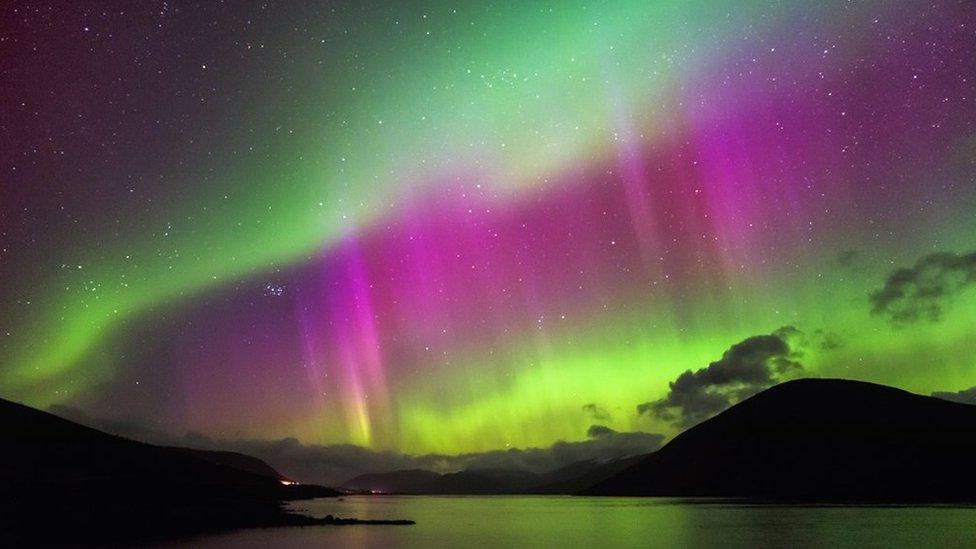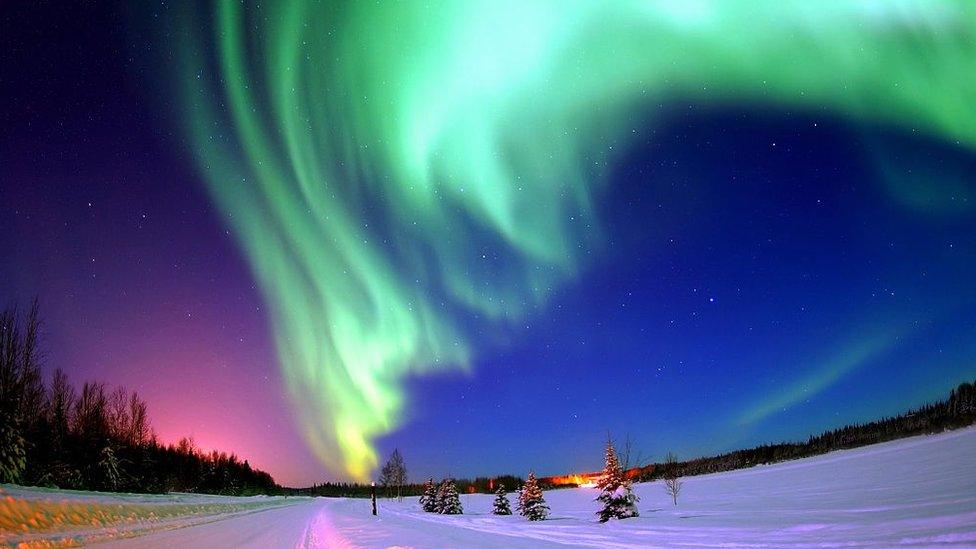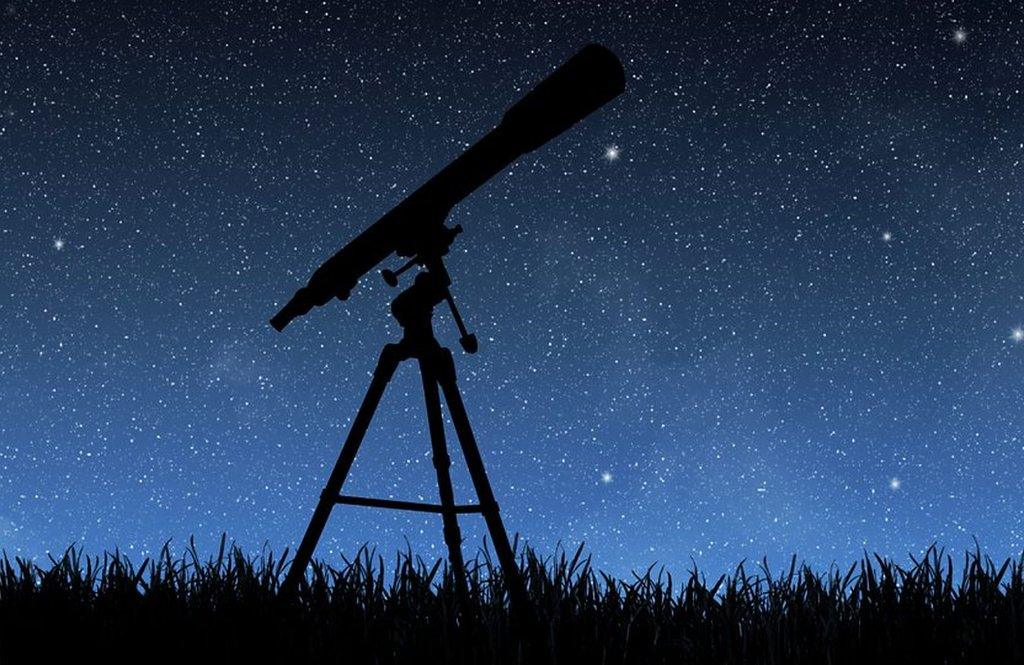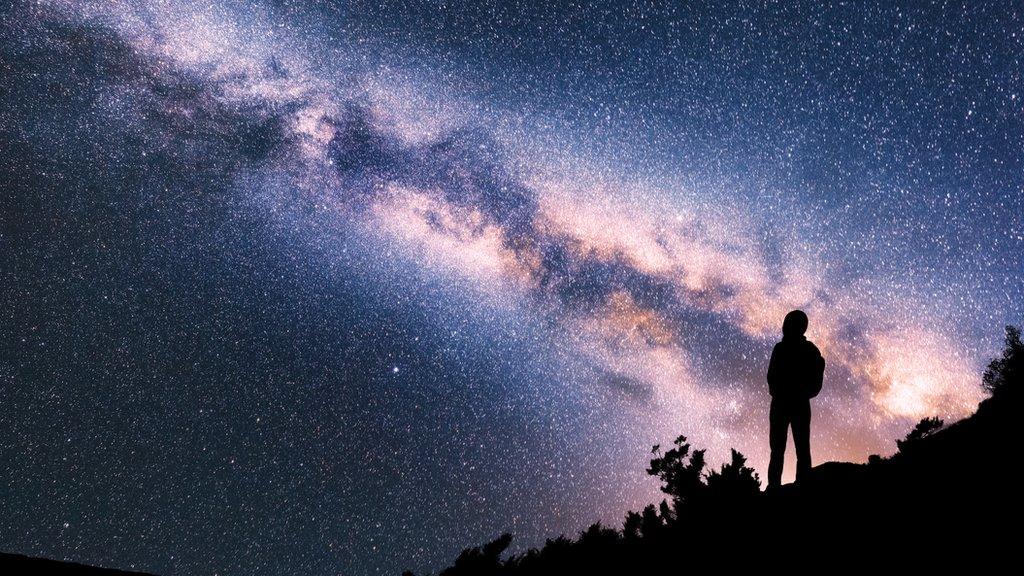Aurora Borealis: Huge space storm could make Northern Lights visible over UK
- Published
- comments

Stargazers in Scotland, the north of England and Northern Ireland could be treated to a spectacular Northern Lights display on Tuesday, thanks to a huge solar storm.
The Northern Lights, or Aurora Borealis, is a phenomenon that appears as shimmering waves of stunning colour in the sky.
It may be visible in UK skies because a Coronal Mass Ejection is expected - this is when a giant burst of gas - or plasma - shoots out from the sun and causes something called a geomagnetic storm.
According to the US Space Weather Prediction Centre, the storm could also cause some disruptions for spacecraft.

The Aurora Borealis often appear over Iceland, Norway, Sweden and Finland
The skies will need to be clear for nature's light show to be truly enjoyed, but the Met Office has said cloud is likely to block the view for some.
While the light show could be visible across much of Scotland, "cloud amounts are increasing, meaning sightings are unlikely for most," the Met Office said.
"There is a slight chance of aurora reaching the far north of England and Northern Ireland tonight, but cloud breaks and therefore sightings are more likely in Northern Ireland."
Out-of-this-world stargazing tips
But, despite the weather Tom Kerss, astronomer and author of Northern Lights: The definitive guide to auroras, has still encouraged people to try and see them.
He said: "Unfortunately I think cloud cover is going to be a bit of an issue for Scotland tonight but it doesn't mean that you shouldn't have a go if you have any clear patches at all."
"It probably has pockets of enhanced energy in it so it could spike in performance every so often, and that means that it's quite possible that auroras will actually reach down into the north of England and maybe as far south as somewhere like Belfast or Omagh - not terribly far south, but they might just become visible over the sea from anybody that has a north-facing view across the north of England." He added.
Have you ever seen the Northern Lights? Get in touch and tell us below...
- Published30 August 2022

- Published7 April 2021

- Published1 May 2020

